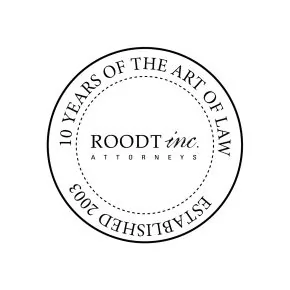The Oppression Section Of The Companies Act Provides The Most Important Statutory Protection Of Shareholders' Rights
The first Supreme Court of Appeal decision on the oppression section of the new Companies Act of 2008
The judgment in Grancy Property Ltd v Manala [2013] ZASCA 57, handed down on 10 May 2013, is the first decision of the Supreme Court of Appeal on the interpretation of section 163 of the Companies Act 71 of 2008 which empowers the court to grant relief to an applicant who establishes that –
- the conduct of a company has had a result that is oppressive or unfairly prejudicial to him or that unfairly disregards his interests; or that
- the business of the company or of a related person is being or has been carried on or conducted in a manner that is oppressive or unfairly prejudicial to, or that unfairly disregards his interests; or that
- the powers of a director or prescribed officer of the company, or a person related to the company, are being or have been exercised in a manner that is oppressive or unfairly prejudicial to, or that unfairly disregards his interests.
What constitutes oppressive or unfair conduct?
The court affirmed the interpretation of what constitutes
oppressive conduct as laid down in Aspek Pipe Co (Pty)
Ltd v Mauerberger 1968 (1) SA 517 (C) which held (at
525H-526E) that –
"Oppressive" conduct has been defined as "unjust
or harsh or tyrannical"... or "burdensome, harsh and
wrongful"... or which "involves at least an element of
lack of probity or fair dealing"... or "a visible
departure from the standards of fair dealing and a violation of the
conditions of fair play on which every shareholder who entrusts his
money to a company is entitled to rely"... It will be readily
appreciated that these various definitions represent widely
divergent concepts of "oppressive" conduct. Conduct which
is "tyrannical" is obviously notionally completely
different from conduct which is "a violation of the conditions
of fair play.
[T]yrannical" conduct represents a higher degree of
oppression than conduct which is "harsh" or
"unjust". The Shorter Oxford Dictionary defines
"tyrannical" as "severely oppressive; despotically
harsh or cruel"... I do not think it is necessary for an
applicant to have to go to the lengths of establishing conduct of
such a nature before he is entitled to relief..."
The factual background to the case
In essence, the applicant in this case – a minority
shareholder of the company in question – averred that certain
named directors (who had by then resigned) of the company had
engaged in conduct that disregarded its interests, inter alia by
paying themselves unauthorised remuneration and by withdrawing
funds from the company for payment to themselves.
The applicant had been unsuccessful in the Cape High Court, which
dismissed its claim for relief.
The Supreme Court of Appeal said (at para [16] of the judgment)
that the question was whether the applicant had made out a case to
be entitled to relief in terms of section 163 of the Companies Act
2008.
Predictably, the directors in question denied the allegations of
wrongdoing, but the court pointed out (at para [18]) that, in their
version of events, they did not seriously dispute that the amounts
of money in question had in fact been paid to them, though they
averred that they were entitled to those amounts. Significantly,
the directors had not taken issue with a report by the
company's auditors regarding grave irregularities committed by
the directors in question.
The order of the Supreme Court of Appeal
The Supreme Court of Appeal ordered that a certain senior counsel
practising at the Cape Bar and a named senior chartered accountant
from a leading firm of accountants were to be appointed as
independent directors of the company in question, and that they
were to have the sole right, in their absolute discretion and to
the exclusion of the company's other directors, to determine
whether there should be an investigation into the company's
affairs in the light of the allegations that had been made against
the directors in question. The order further provided that those
independent directors could not be removed from office except by
the unanimous vote of the company's shareholders or by an order
of the high court.
The content of this article is intended to provide a general guide to the subject matter. Specialist advice should be sought about your specific circumstances.


